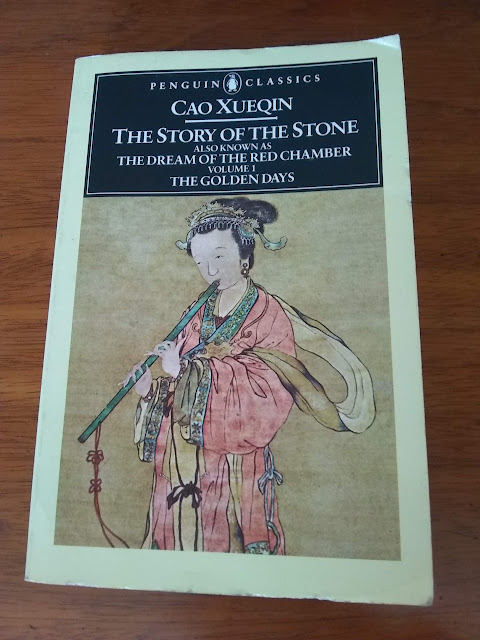I wrote in my World of Lazarus review:
- There's a nice section on how an organisation a GM creates might grow and plot to advance itself. A component I can see myself using elsewhere.
Very well. Let's give this a try.

We will speculate that a minor family under Minetta aims to carve out a domain of their own in former Soleri territory. This is semi-plausible - given that A) there is no sovereign authority in the East African territory that World of Lazarus maps out as former Soleri territory and B) Minetta is relatively laissez-faire as a Family goes - not that they would be intensely relaxed by this move, but this can give said minor family more starting room to manoeuvre.
What shall we call them? Let's give this minor family a name from the Karnataka and the Mysore region - Urs, and have them unite with a warlord; a former Soleri colonel who can muster enough diplomatic niceties to integrate himself into X+65 international society. We'll call him Gadarat, after an Aksumite king and base him in the plain around Djibouti. Urs-Gadarat will try to set up a Trans-Erythreaean power base...
[That is, one set up across the Indian Ocean. I'm being wilfully obscure, I suppose - but Trans-Indian could mean, e.g. between Mumbai and Kolkatta or Chennai and Lahore. So we're using an older phrase for the Red Sea and beyond, because I want a non-confusing equivalent to Trans-Atlantic or Trans-Pacific.]
....in, the aim would be, a quadrilateral with corners at Cochin, Hyderabad, Aden and Zanzibar. Penetration into the Ethiopian Highlands and the Nile below Khartoum can wait.
This draws on A) a history of trade across the Indian Ocean, B) The Aksumite empire mentioned above had territory in Ethiopia and what is now Yemen and C) a desire to see another scattered set of family territories like Bittner on its arc across the North Atlantic, another thalassocracy. (I take it that sea trade in X+65 persists despite fancy future aeroplanes, &c. No one's seriously restarted travel by airship. The Macau Accords would likely affirm something like present Freedom of the Seas for de facto King Canute reasons.)
***
Let's trace out a year by some of the tables in World of Lazarus.
The first stage of Urs-Gadarat is a Plot action: a Surgical Strike against Mogadishu to knock out the local rulers (a group of strongmen operating through puppet-Magistrates). Initial strike by helicopter, with drone reconnaissance; reinforcement by Land forces from the Jijieh-Gode highway (widened by Soleri). The defence advantage is matched by the intelligence Urs drones are able to provide. A qualified success: the Gadarat strike force suffers severe casualties. But in the next fortnight Urs civil engineering teams are able to clear and operate the harbour, opening it to vessels from other Minetta sub-groups.
Attempts to Grow Urs-Gadarat properly into the interior of the Horn are stymied by an Organisational Threat: Shortages. Their ports might be secure and there may be no military threat, but compliance is slow. Farms, mines and production facilities can only produce the desired commodities with assistance - crop-strains, machine tools, vehicles. Repayment is more likely with U-G managers and enforcers in place, but this will still require a sacrifice of Capital.
And U-G is Plotted against. Their expenditure has not gone unnoticed in Minetta, and the scheme is now more obvious. Any action against Minetta is Undermined.
The proper response to this is a Plot of Corruption. Influence and Capital are applied to Minetta inspectors, who may convincingly state that this is Gadarat's action, with Urs purely involved in a commercial sense.
A further season of Growth will now be needed: A Hardening of Systems - both Urs enclaves in Mysore and the Djibouti-Mogadishu line. Harar will stand as a strong point protecting the Horn region. Mysore assets will undergo a reinforcement from the veterans of Mogadishu - newly trained in the advanced weapons and battle-drills of a Family-level army.
The slow trickle of profits from existing Urs properties and new acquisitions allows Recapitalisation by U-G. But all this does now go unnoticed, and a mix of proxy efforts go against them. The Khartoum Clique begins selling arms to the Provisional Governate in Addis Ababa, and Nkosi flames into life rumours of U-G injustice in Mogadishu. Bad PR. Growth in the next year will struggle.
Accordingly.....
***
So...this was a fudge. I'm not quite using the Modern AGE mechanics here - it's a partially random, partially chosen set of ideas, which I hope hang together. A better option would have been to copy out the relevant tables, scrubbed of explicit mechanical detail.
But was this satisfying? Eventually, yes. It's aping a real story or set of events, but by X+66 we have decent powder-keg in the former Soleri territory. There's the possibility of war along the Awash river valley and the ridge of the Ahmar mountains. The Islamic shrines of the city of Harar devastated - incensing religious leaders in the Minetta bailiwick, who have a ready-made strike against Urs-Gadarat....
Let's call the above, then, the turning of a starting-handle. Lots of sweat and grinding, but the motor is now purring nicely.



